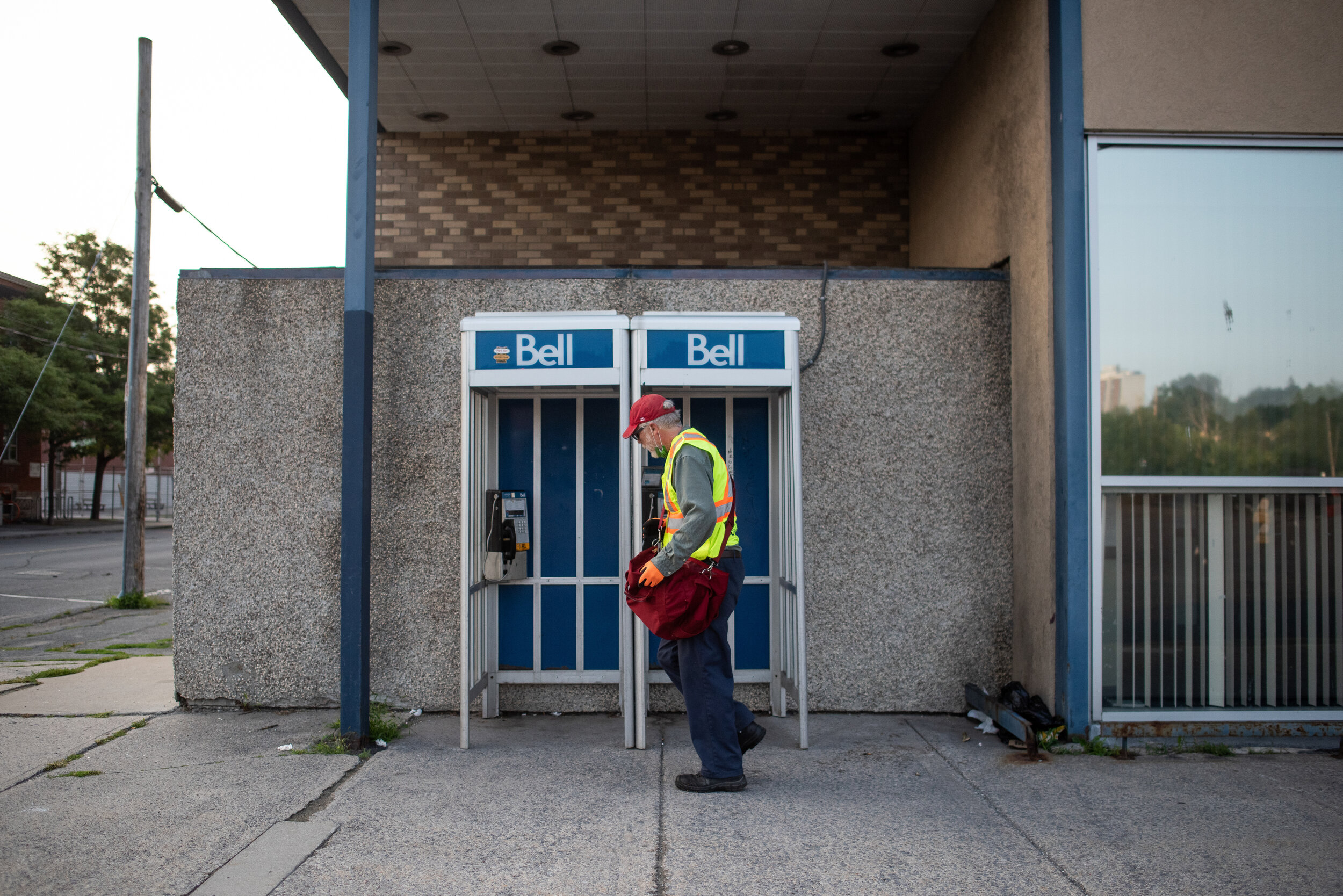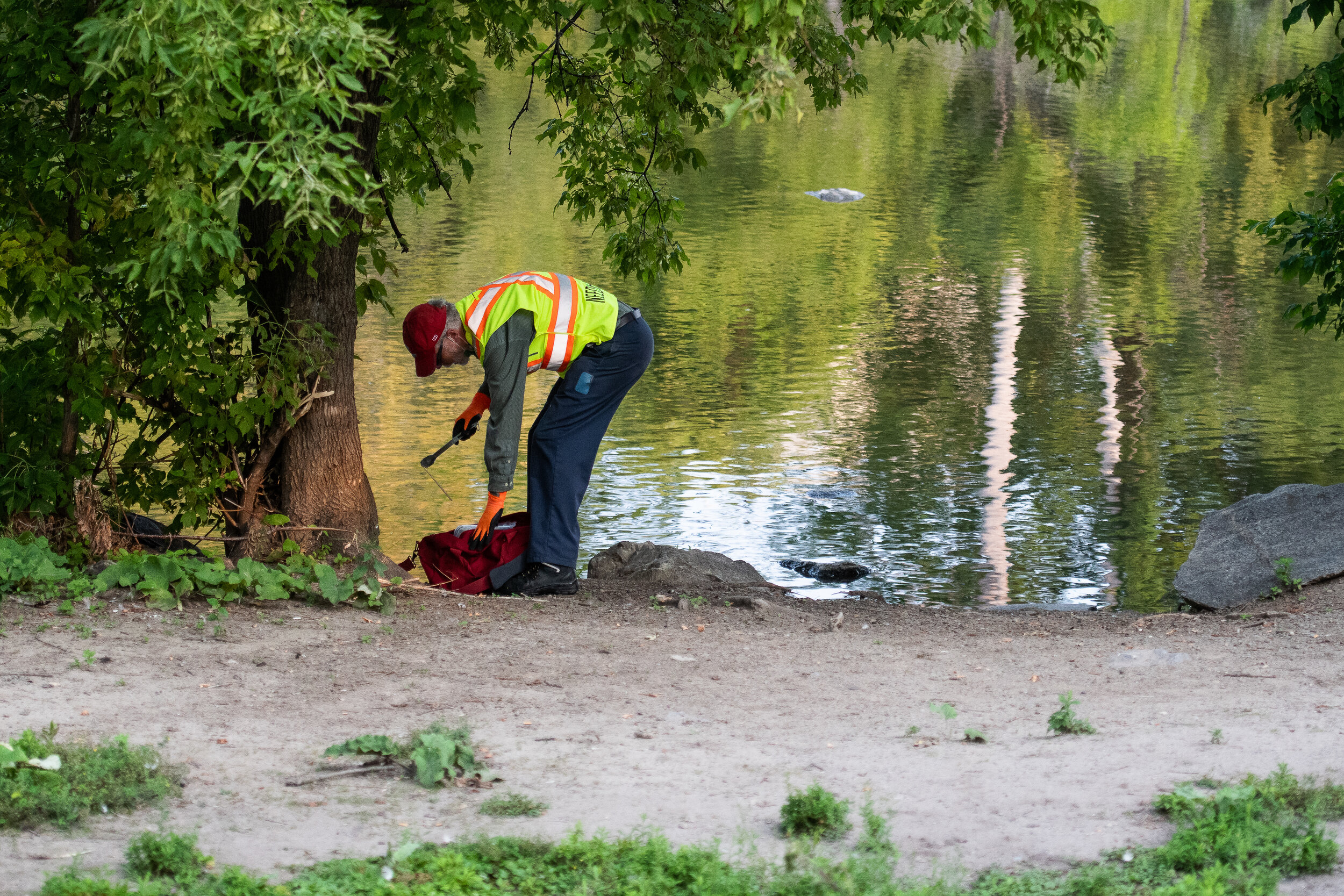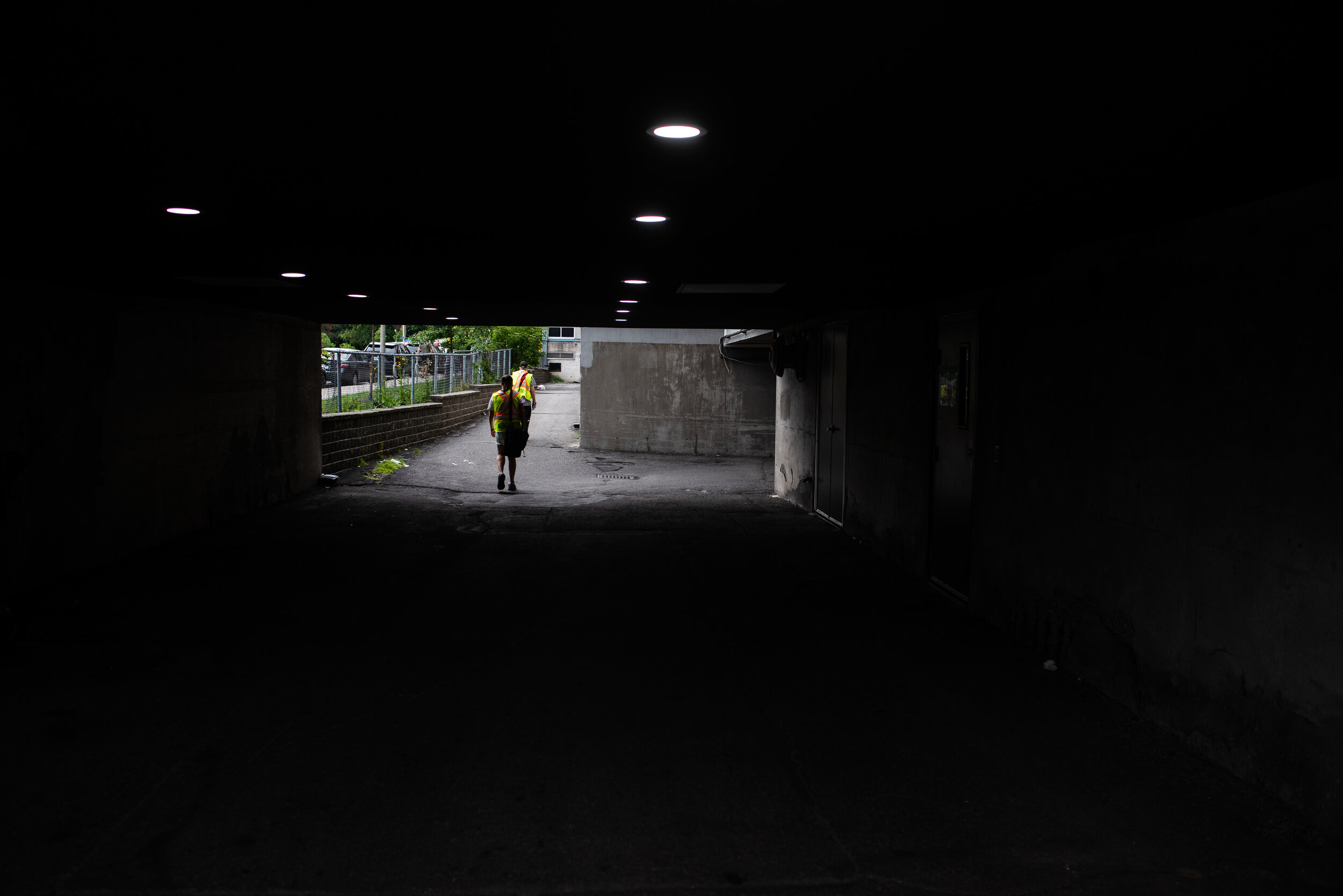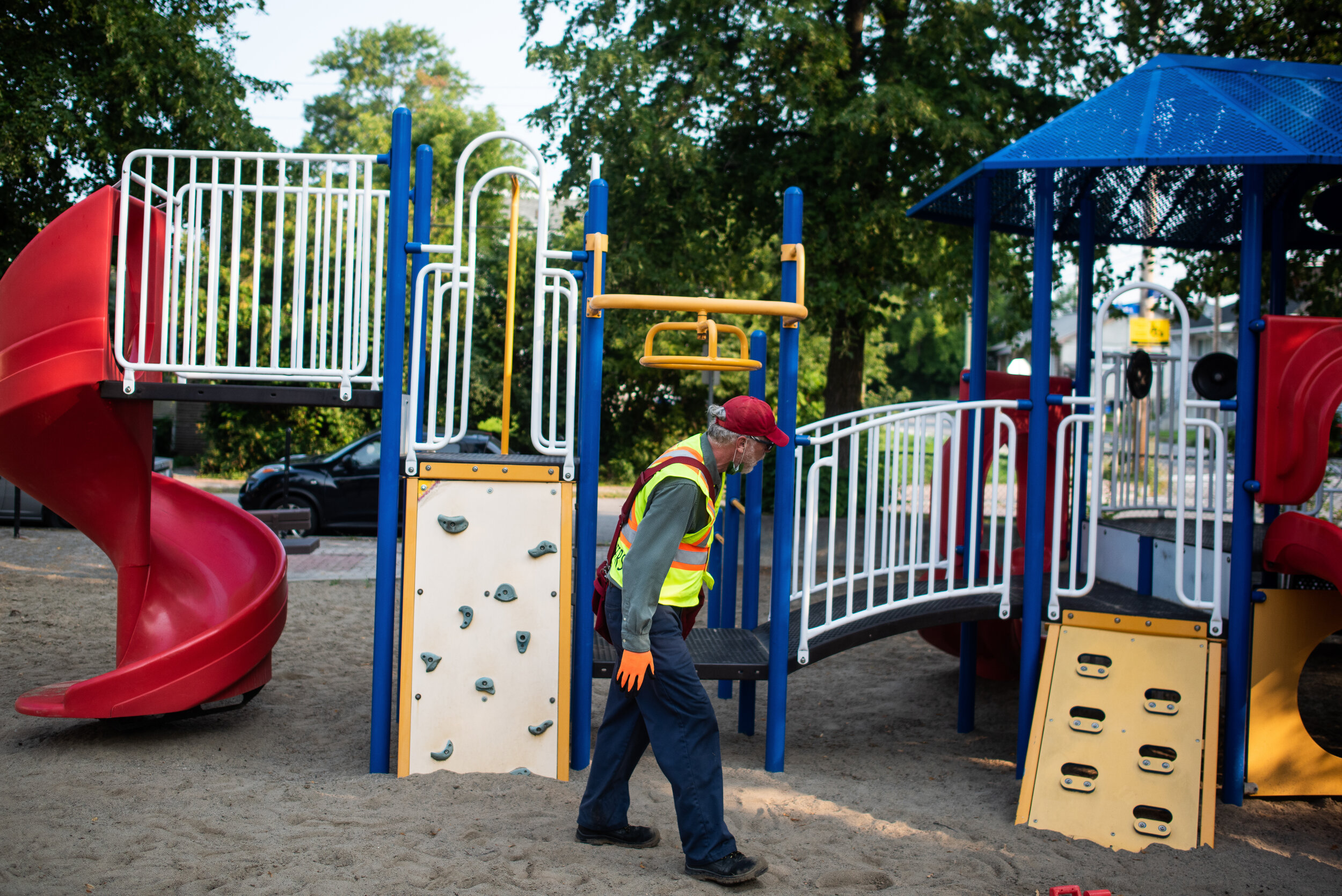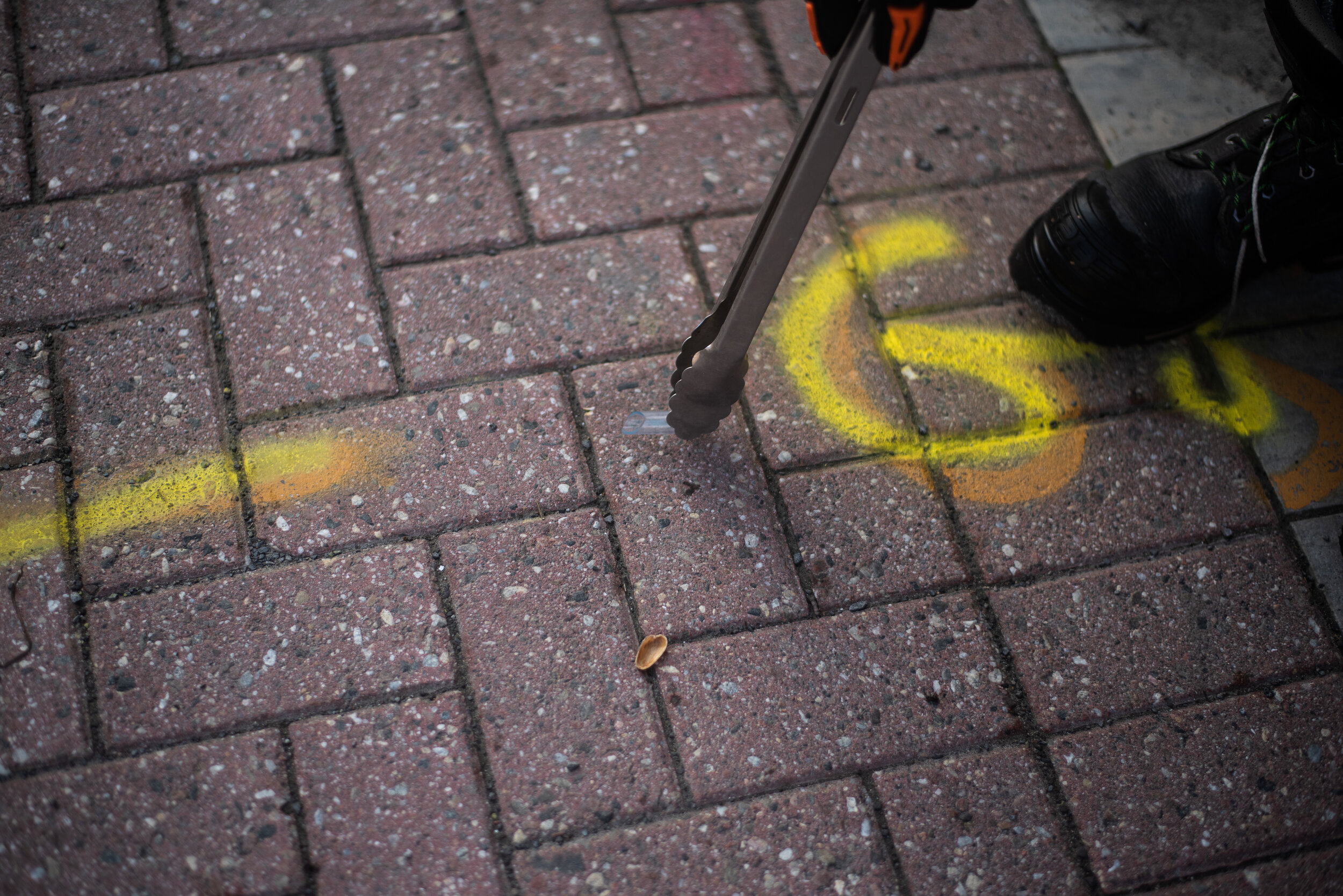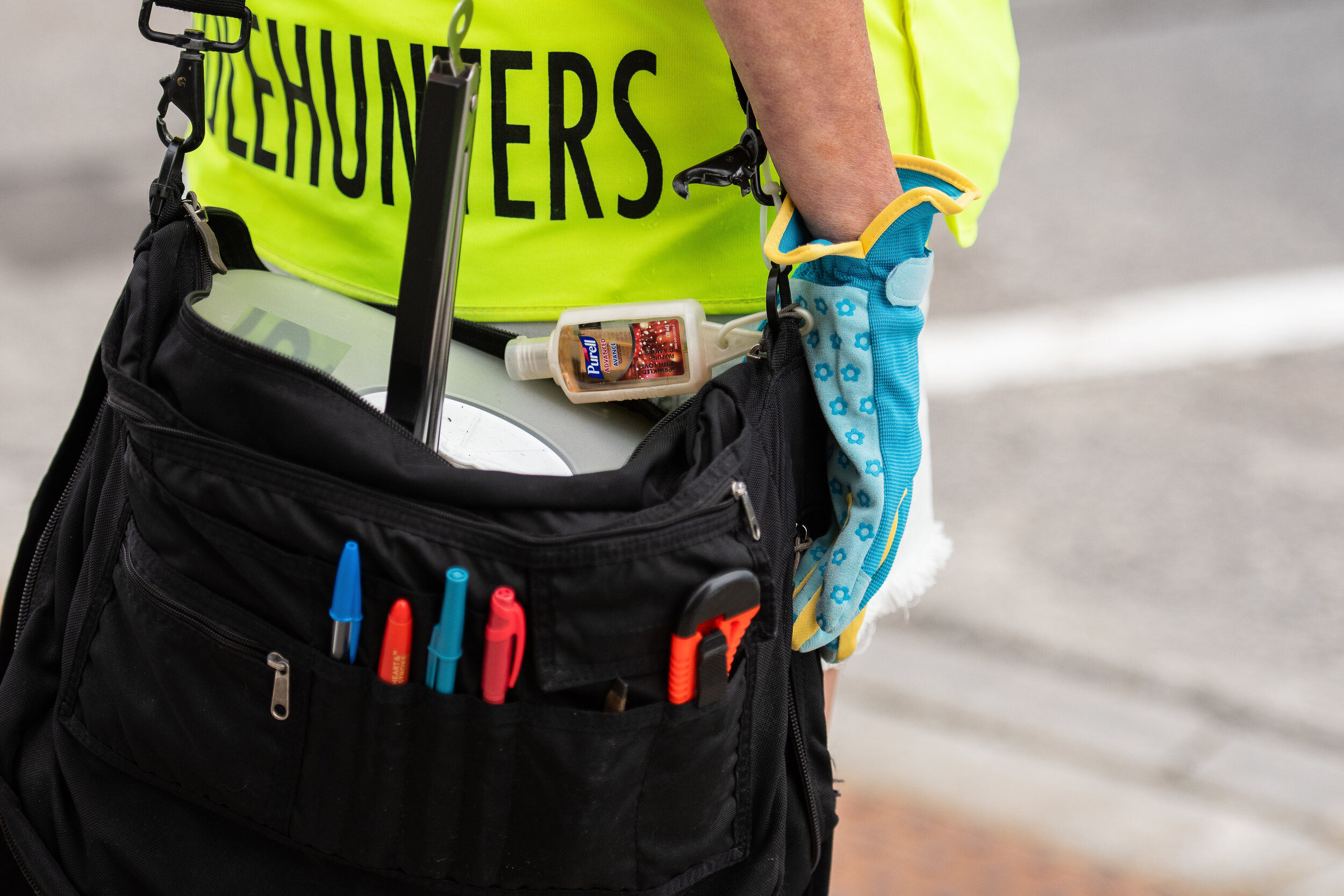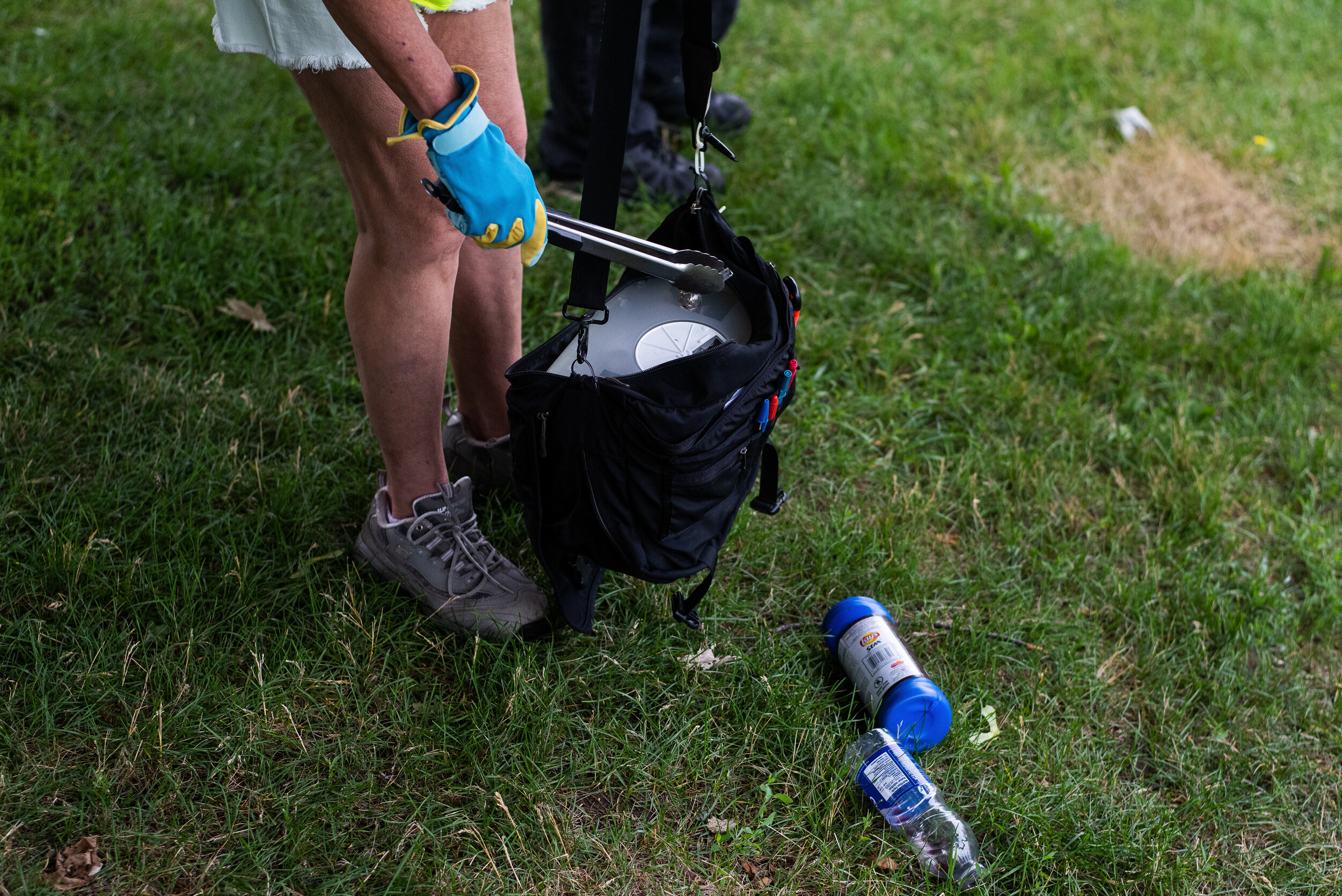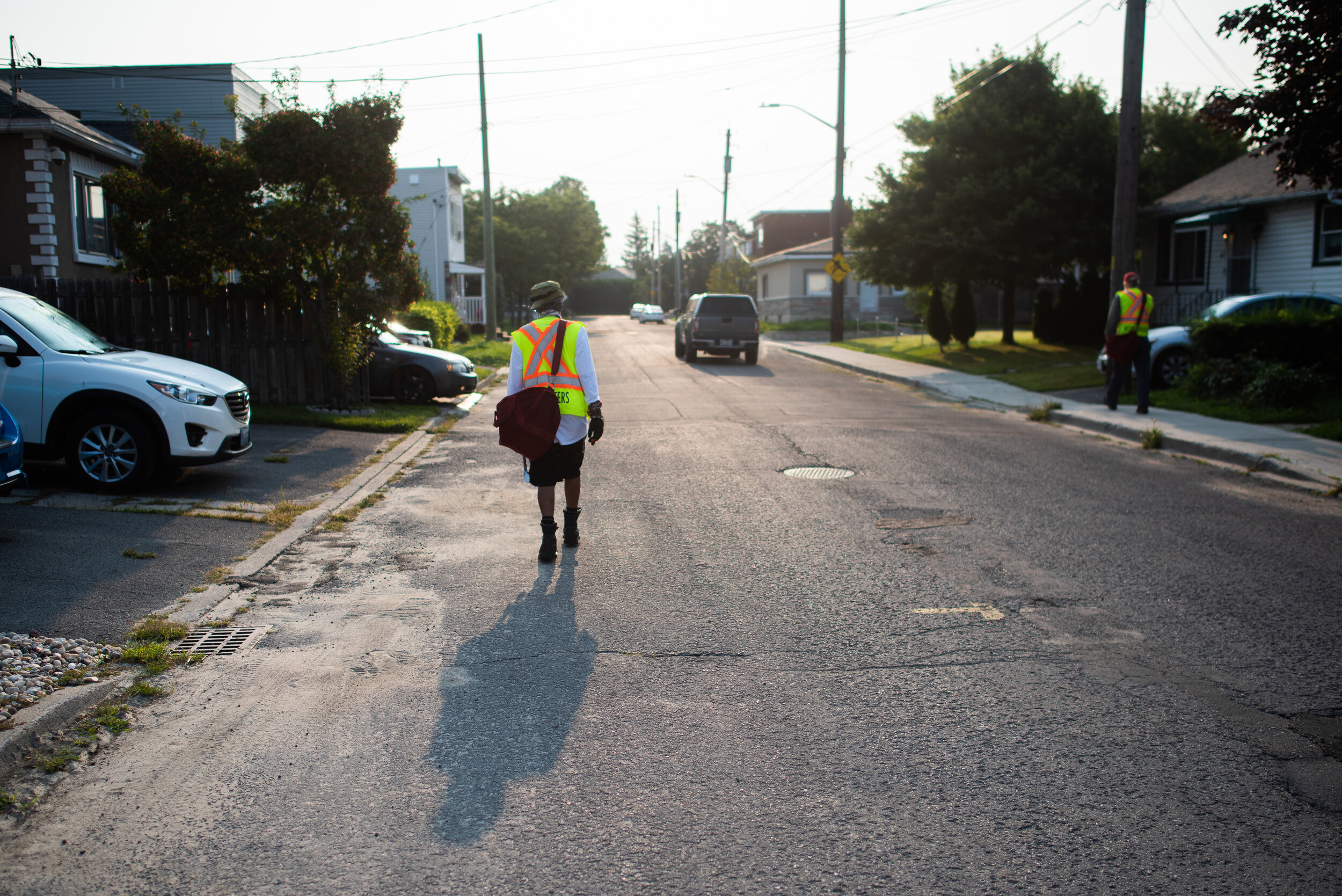Why needle hunters, who comb the streets for dangerous garbage, say they love their work
Photos and words by Spencer Colby for CBC Ottawa
Needle Hunter Darlene Nimis says it was her then-teenaged daughter who motivated her to start collecting used needles six years ago and she continues to love the work. 'I enjoy my job. People say thank you and it's fun to do.' (Spencer Colby / CBC)
OTTAWA, CANADA - One needle and two crack pipes is a slow day for Tatek Daniel, a so-called needle hunter on one of the regular Vanier routes.
He's one of nearly 50 part-time workers who fan out across the city early each morning to collect used needles, crack pipes and condoms for a program run by Causeway Work Centre.
"I love the job," said Daniel, who started just as the pandemic began after being unemployed for a time.
"It's a good thing for me because I didn't do anything during the day. I'm an [Ontario disability support program] recipient."
"I love this work because it gets me out... helps the community and plus it puts money in my bank — which is great."
Tatek Daniel started needle hunting in April 2020, after being unemployed for a time. He says he enjoys the work because he feels he's contributing to his community and it gets him out of the house. (Spencer Colby / CBC)
Photojournalist Spencer Colby followed several needle hunters along their downtown Ottawa routes this summer to showcase what some might consider unpleasant work and learn the stories of those who do it.
Most hunters are driven by a desire to clean up their neighbourhoods, and say the bigger the needle haul, the better, according to program manager Justin Byrne.
During the pandemic, staff report a noticeable increase — something Byrne says could reflect an increase in opioid use, or simply be an increase in reporting of found needles.
"The feedback that I've gotten from staff is that it does seem to be busier…there's more things out there, more things to find," said Byrne.
"It's difficult to separate one factor from another. With the lockdown, people are spending more time in their neighborhoods... in green spaces and parks. So that could be a factor in the sense that people are noticing these things more and reporting more."
According to public health estimates, needle hunters collected 27,000 needles in 2020, up from 18,000 the previous year. But Byrne says that's also in the context of a longer term rise in opioid use over several years.
Neighbours cleaning up
Many needle hunters have a connection to the neighbourhoods where they patrol and say they'd even clean the streets for free.
"[They] just want to get back to the community, either because they live in areas where there's a lot of activity or … it could be that they are former drug users themselves so they understand the impact it can have," said Byrne, adding their goal is to keep the area safe and clean for all.
That's a powerful motivator for Darlene Nimis, who started 6 years ago, in part to protect her then 13-year-old daughter.
"You see more of it on the street now, and it's not safe for anybody," she said.
"When my grandmother was alive, she'd be the one trying to pick up something off the street, not knowing if it was safe or not. So it means something."
Darlene Nimis found this pipe, used for meth consumption, in Lowertown. (Spencer Colby / CBC)
The part-time program is also a way for people like Daniel or his partner Phillip Truesdale to get a foothold in the workforce, in line with the non-profit's mandate.
Because their bright yellow vests make them stand out on the street, hunters sometimes find themselves recruiting new members. Daniel says this happened recently when he and his partner met a drug user on his route.
"Most people would say, 'get out of here, you're a crackhead, you got nothing, I'm not going to talk to you," he said. Instead, his partner handed out a card for the program.
Justin Byrne oversees the needle hunter program at the Causeway Work Centre. (Spencer Colby / CBC)
Besides the vests, hunters carry sharps, disposal boxes, gloves and barbecue tongs to safely pick up the needles. The hunters also write down where they were found so Ottawa Public Health can update its routes.
Most needle hunter routes operate during the summer months throughout downtown neighbourhoods, though there are a few that continue during the winter. (Spencer Colby / CBC)
Byrne says despite the uncertainty of the early pandemic, there was little turnover among the hunters, who often told him they were grateful for work that got them out of the house in the morning.
They say they continue to be motivated by those moments of thanks, like when a neighbour recently stuck his head out a fourth-storey window to yell "you guys are awesome".
"The fact that the community sees [their contribution] ... and gives that back to them is huge," said Byrne.
"People tell you, 'awesome job, kudos'... You know the fact that they're saying that tells us that we're doing a good job, and that's awesome," agreed Daniel.
For Tatek Daniel, the thanks he gets from passersby in the neighbourhood makes the early morning work worth it. (Spencer Colby / CBC)
Story link: https://www.cbc.ca/news/canada/ottawa/needle-hunters-pandemic-ottawa-photos-1.6137521


